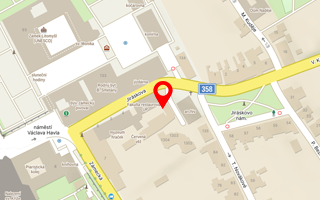Letní škola technologie restaurování památek
Poskytovatel: Národní agentura pro evropské vzdělávací programy
Program: Erasmus
Období realizace: 12.08.12 - 31.08.13
Pracoviště:
Popis:
Science is an important and indispensable support for conservation. Collaboration between Science and Conservation, in which the work is conceived, planned and developed by a multidisciplinary team working in consonance is most advantageous, but still uncommon primarily due to the communication difficulties between scientists and conservators. The HERCON Summer School will bring together multinational group of students of conservation and teachers of conservation science to enable them to discuss methods of scientific work in the field of conservation. The 10-day IP is for 1st cycle conservation-restoration students interested in deeper knowledge of conservation science. Students will acquire a solid knowledge of the ways natural and material science are applied in safeguarding cultural heritage and will learn ways the experimental techniques are used in authentication and diagnosis of the degradation of ancient materials. That will help them in their future professional career to collaborate and communicate with the scientists effectively. Hopefully, it will bring more interdisciplinary research projects and papers and enable conservators to cope the challenges of cultural heritage care. The Summer School will take place in a historical city of Litomyšl, where is located the Faculty of Restoration. As a part of the course, students will have the opportunity to visit the renaissance castle, which is on the list of UNESCO heritage or Portmoneum museum with the murals of Josef Vachal. A multinational team of Central European experts in conservation science will deliver theoretical lectures and practical showcase on uses of instrumental and diagnostic analytical methods in heritage research. The main aims of the IP are to advance the collaboration between conservators and scientists, encourage preparation of interdisciplinary project and papers, encourage the critical thinking and decision-making of young conservators. The expected learning outcomes are to systematically analyze and solve problems, analyze the structure and identify the material of works of art and evaluate the obtained results, prepare and present the laboratory report. The main didactical approach will use active learning strategies. The educational materials produced by the lectors of the Summer School will be available to partner institutions. The report on the Summer School might be submitted to a national or international peer-reviewed journal for further dissemination in the scientific community.
Science is an important and indispensable support for conservation. Collaboration between Science and Conservation, in which the work is conceived, planned and developed by a multidisciplinary team working in consonance is most advantageous, but still uncommon primarily due to the communication difficulties between scientists and conservators. The HERCON Summer School will bring together multinational group of students of conservation and teachers of conservation science to enable them to discuss methods of scientific work in the field of conservation. The 10-day IP is for 1st cycle conservation-restoration students interested in deeper knowledge of conservation science. Students will acquire a solid knowledge of the ways natural and material science are applied in safeguarding cultural heritage and will learn ways the experimental techniques are used in authentication and diagnosis of the degradation of ancient materials. That will help them in their future professional career to collaborate and communicate with the scientists effectively. Hopefully, it will bring more interdisciplinary research projects and papers and enable conservators to cope the challenges of cultural heritage care. The Summer School will take place in a historical city of Litomyšl, where is located the Faculty of Restoration. As a part of the course, students will have the opportunity to visit the renaissance castle, which is on the list of UNESCO heritage or Portmoneum museum with the murals of Josef Vachal. A multinational team of Central European experts in conservation science will deliver theoretical lectures and practical showcase on uses of instrumental and diagnostic analytical methods in heritage research. The main aims of the IP are to advance the collaboration between conservators and scientists, encourage preparation of interdisciplinary project and papers, encourage the critical thinking and decision-making of young conservators. The expected learning outcomes are to systematically analyze and solve problems, analyze the structure and identify the material of works of art and evaluate the obtained results, prepare and present the laboratory report. The main didactical approach will use active learning strategies. The educational materials produced by the lectors of the Summer School will be available to partner institutions. The report on the Summer School might be submitted to a national or international peer-reviewed journal for further dissemination in the scientific community.
